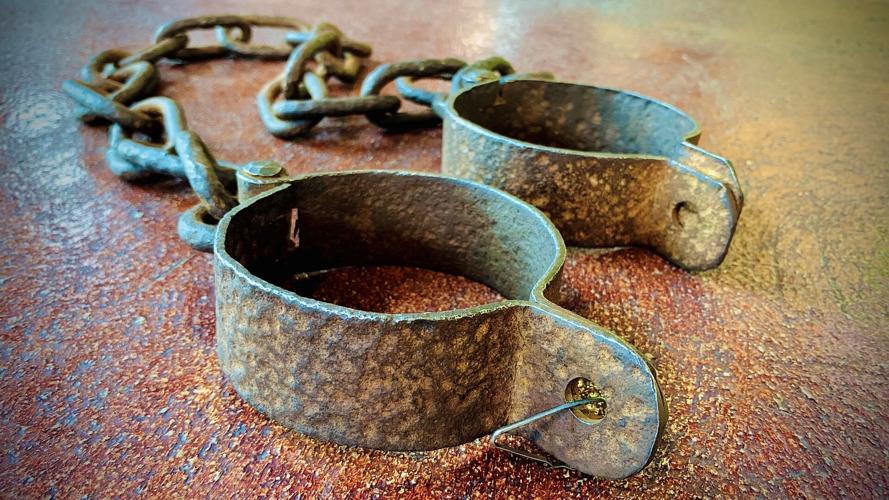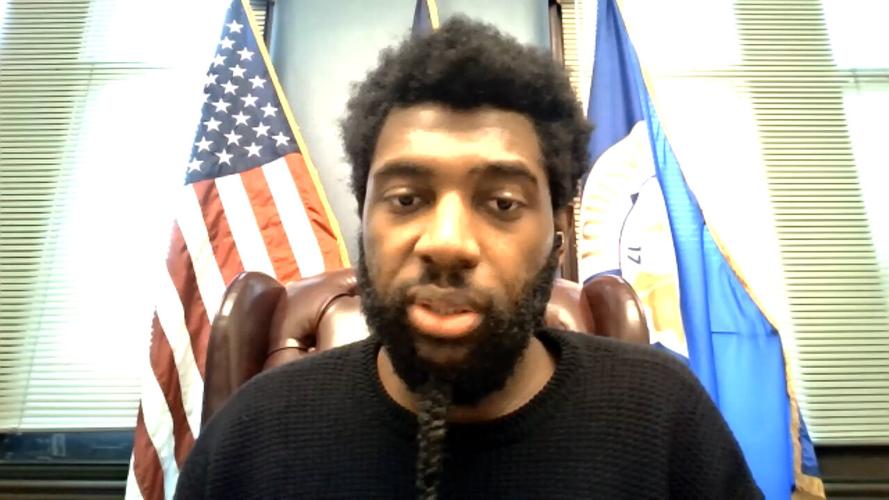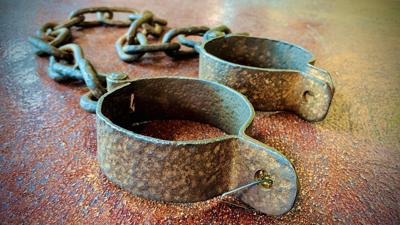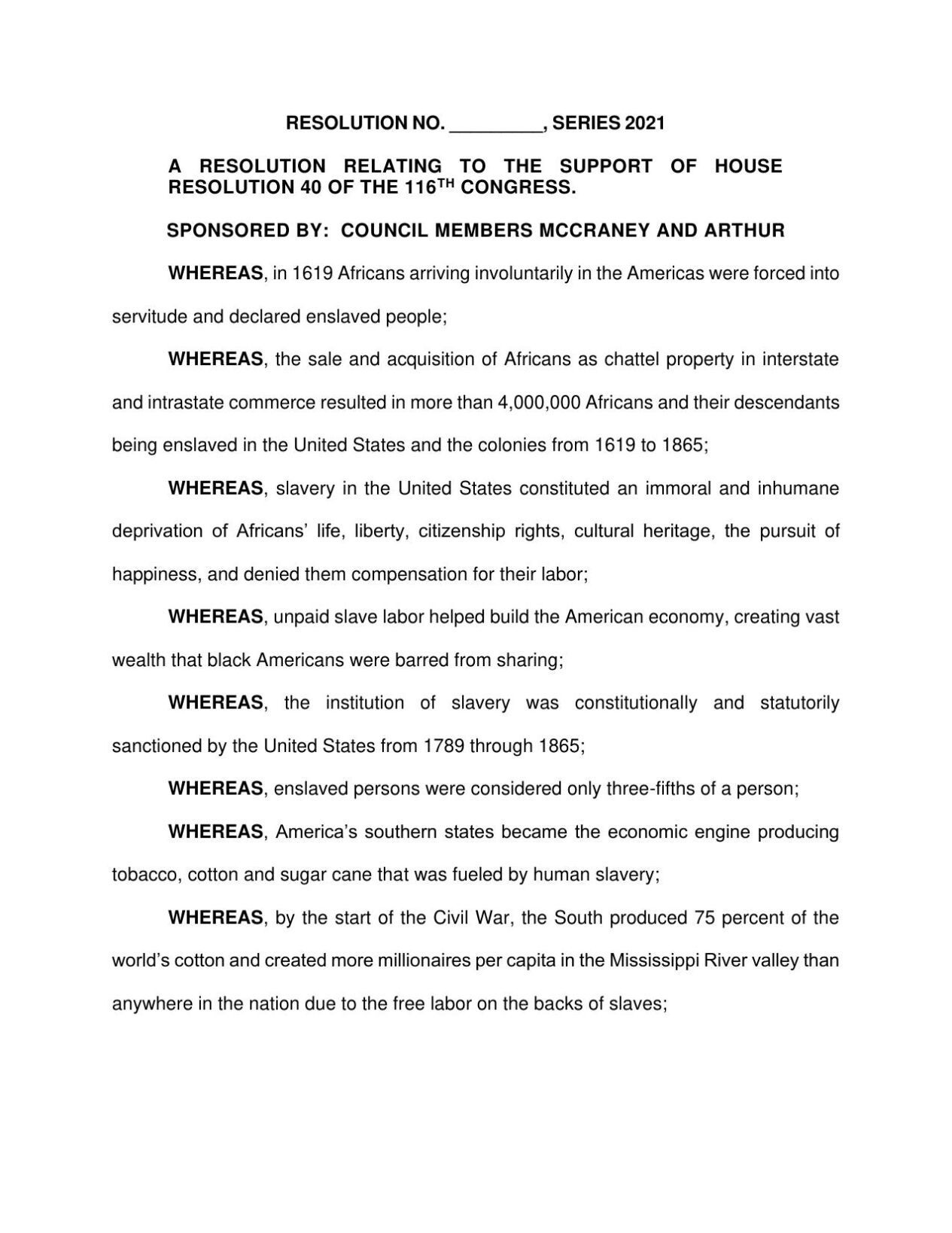LOUISVILLE, Ky. (WDRB) -- Walk into Roots 101 African American Museum in downtown Louisville, and its exuberant founder, Lamont Collins, is quick to let visitors see or even touch one of the museum's most powerful pieces: a pair of cast iron shackles from the African nation of Ghana.
"These are over 400 years old," he said, as he clutched the heavy shackles.
Centuries ago, Collins says they were used to enslave captured Africans and transport them to the New World for slave labor. Nowadays, they're used to teach and remind.
Monday afternoon, Collins placed the heavy handcuffs around the wrists of a young African American visitor. Weighed down by the heaviness of the braces, her slender arms reflexively lowered.
"Uprising," the suddenly emotional visitor remarked to Collins. "I see where I came from, and I know where I can go."
"Beautiful," a somber Collins answered.
Collins says he's reminded daily of how slavery, Jim Crow laws and a history of hatred broke up Black families and communities, erased their generational wealth and depressed them economically and socially well beyond slavery's end.
"I think it's something that should be discussed. I think that it's something that should be discussed openly and honestly. There's no way that America can't say it does not owe people of color compensation," he said. "African Americans need to be compensated for the loss we had. There's no doubt about it."
Now, some on Metro Council are acting on that idea. A brand new resolution would show Louisville's support of reparations.
If Metro Council approves the resolution in the coming weeks, it would ask the U.S. Congress and other federal leaders to support House Resolution 40, which would study reparation proposals and then offer direct payments to the Black Americans descended from slaves.
According to the resolution, "The Council believes reparations must be direct payments to Black American Descendants of Slavery. In addition to payments, there should be protections and other legislative actions that directly benefit Black American Descendants of Slavery. Other legislative actions should include: 1.) Passage of the John Lewis Voting Rights Act; 2.) Passage of the For the People Act of 2021 3.) Reform of criminal justice system and prisons; 4.) Police reform, including examination of qualified immunity; 5.) Evaluation and analysis of achievement gaps in standardized-test scores in public schools and legislation of equity in testing."

Councilman Jecorey Arthur, D-4. (WDRB Photo)
Councilman Jecorey Arthur, D-4, is sponsoring the resolution along with Paula McCraney, D-7, another African American member of Metro Council.
"It's incredibly important that we put our money where our mouth is and also realize we're not even talking about paying as a city. We're calling on the feds to make that payment," said Arthur.
Arthur said the city budget is simply too small to address the issue.
"I think the biggest misconception is that I'm going to reach into your bank account and take money out, because your grandfather — or maybe your grandfather didn't — enslave my grandfather," Arthur said to white Louisvillians.
"It's simply us, as a city, acknowledging the atrocities that have occurred, that have victimized us as Black American descendants of slavery. Saying that we acknowledge a debt is owed," he continued.
Despite the optimism from Arthur and others, the plan could be a tough sell both inside and outside City Hall.
Some Louisville residents interviewed by WDRB News said they are unequivocally against the idea and feel slavery is too distant to warrant reparations now. Others, however, said the idea might be worthy of exploring but questioned how the payments would even be feasible given the lapse of time.

Lamont Collins speaks with a museum visitor. (WDRB Photo)
Collins admits the idea faces long odds.
"You know, I'm 62 years old," he said. "If I hold my breath, I wouldn't have lived to 62. So I learn never to hold my breath. I learned to breathe, pray and move forward. And that's what the Black community has always done."
If anything, he hopes the council resolution will produce a productive dialogue about reparations — and the metaphorical links of the shackles that he says are less visible but still around today.
"Four hundred years seems like a long time ago, but Black America is still dealing with the issues 400 years later," he said.
The resolution will be introduced during a Thursday meeting. Council could begin to debate it next week.
Read the current draft of the resolution here:
Copyright 2021 WDRB Media. All Rights Reserved.















